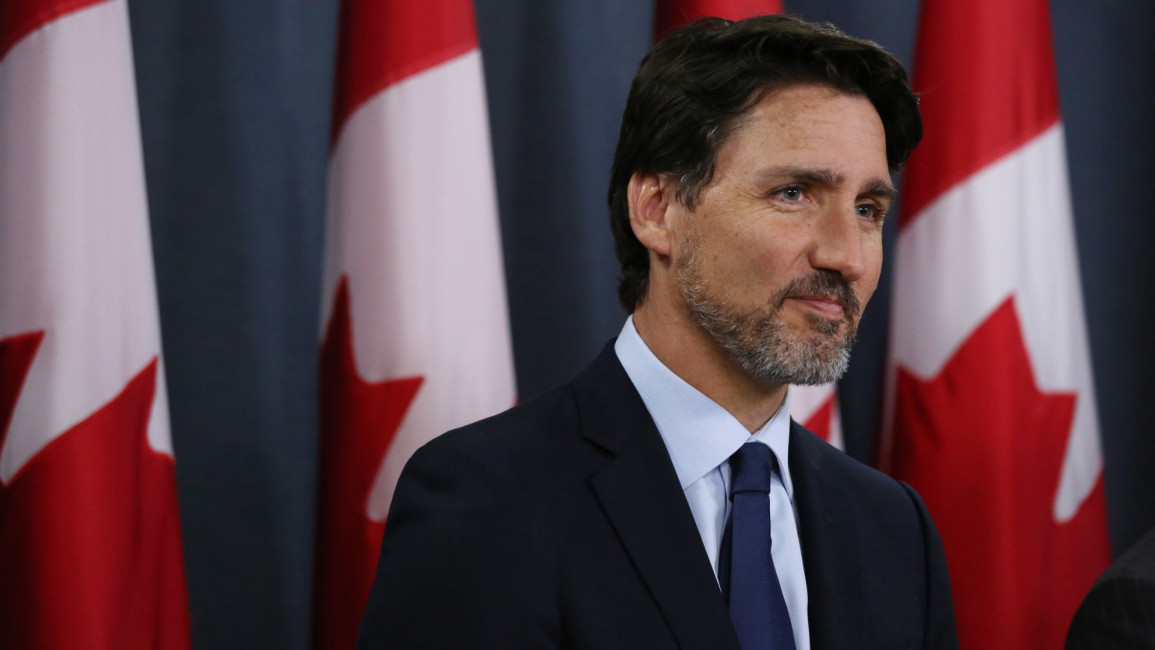Canadian organisations urge Trudeau to stop arms sales to Saudi Arabia
In April, the Canadian government renegotiated the terms of a $14 billion light armoured vehicles contract with Saudi Arabia, paving the way for exports to recommence following a spat between the two countries.
The letter was signed by a coalition of 39 human rights, arms control and labour organisations, including the Public Service Alliance of Canada, the largest union within the Canadian government.
The coalition said that Canada’s arms exports to Saudi Arabia more than doubled in the past calendar year and hit a record high in 2019, thanks to Ottawa's lucrative light armoured vehicles contract with Riyadh.
Last year, Canada exported nearly $2.9 billion worth of military equipment to Saudi Arabia, with nearly all of it being light armoured vehicles, according to the letter. Weapons shipments to Saudi Arabia currently make up over 75 percent of Canada’s military exports to countries other than the United States.
|
In a report for the period ending in June 2020, a UN Human Rights Council panel of independent experts monitoring the Yemen conflict last week included Canada for the first time in a list of countries selling arms to entities fighting in the country. The panel included Canada due to an increase in its arms sales to Saudi Arabia.
The experts wrote the countries named in the report, which also include the US, the UK and France, “continued their support of parties to the conflict including through arms transfers, thereby helping to perpetuate the conflict".
Canada's vehicle sales to Saudi Arabia had previously been on hold since 2018 due to tensions between Ottawa and Riyadh over the murder of journalist Jamal Khashoggi and Saudi Arabia's involvement in the war in Yemen.The move marks a U-turn for Prime Minister Justin Trudeau, who had indicated in December 2018 that he was looking to end the controversial agreement.
Minister of Foreign Affairs Francois-Philippe Champagne, however, said in a statement that cancelling the deal "could have resulted in billions of dollars in damages to the government of Canada, with potential damages amounting to the full value of the contract", he said.
The move would have put thousands of Canadian jobs at risk, not only in "southwestern Ontario but also across the entire defense industry supply chain, which includes hundreds of small and medium enterprises", he added.
The vehicles are made in Canada by a subsidiary of American contractor General Dynamics.
"Under our law, Canadian goods cannot be exported where there is a substantial risk that they would be used to commit or to facilitate serious violations of international humanitarian law, international human rights law or serious acts of gender-based violence," he said.
The coalition asked Trudeau to come up with a plan alongside labour unions to support Canadian workers who would be affected by an end to arms sales to Saudi Arabia.
A spokeswoman for Global Affairs Canada, a department in the Canadian government, told the Globe and Mail Canada has "one of the strongest export-controls systems in the world, and respect for human rights is enshrined in our export-controls legislation".
The conflict in Yemen has killed more than 100,000 people and created the world’s worst humanitarian disaster, with more than 3 million people internally displaced and two-thirds of the population relying on food aid for survival.



